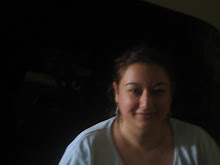If you read my previous post on old age problems such as dementia, Alzheimer's etc, you'll know I advocate seeing the "patient" as a whole person, who deserves to be not just alive but also as comfortable and happy as possible. Not just that – I also believe each person is unique, so not everyone responds in exactly the same way to every medicine. And most of all, patients are people, not cases with labels like "dementia patient" or "Alzheimer's patient," etc.
So what do you do when someone close to you is diagnosed with, let us say, Alzheimer's and the doctors insist on strong medication; if you disagree, they tell you (i) they are the expert so you must do as they say – the first part is true, but not necessarily the second part; (ii) that if you don't something terrible will happen. "You haven't seen anything yet," they say. "It's going to get much worse." In other words, if you don't allow me to sedate your loved one, you won't be able to handle them later on. Or, should we say, you won't be able to handle this "case."
I have the greatest respect for doctors and, in particular, for neurologists, who put in years of effort and dedication to gain the knowledge they then use to try and keep us alive and healthy. I would not be able to look after myself without help from doctors and the medicines they have prescribed over the years. But I also know this: the final decision about what to put into my mouth, or how to cut up my body is mine. So is the responsibility. It is a decision that should be taken calmly, after weighing the advice of the professionals, ie. doctors. But it is not a decision to be made out of fear, because a doctor (or anyone else) says, "Wait till you see how much worse it can get."
Anything can be. We have to weigh the possibilities and probabilities for ourselves – and, sometimes, for our loved ones. And we have to consider our/their medical history, personality, beliefs etc. Some years ago a very well respected specialist scared me into having laser eye surgery that I now know I did not need at that stage. I might have needed it later in life, that's true – but I did not need it then. The doctor told me I could get glaucoma if I didn't have the surgery. That's true, I could – because anything might be. But I wasn't showing any signs of it then. Unknown to me then, there are eye drops I could have used to keep my eye pressure under control – which was not in the danger zone anyway, but "might have gotten there" in time. The doctor prescribed these drops – after the surgery.
I still have the greatest respect for this doctor. He advised me with the best motives and to the best of his understanding and his ability to project the future. But I made a mistake in making the decision to have the surgery when it was not needed, based solely on his advice rather than on his advice and my own assessment. No harm done – the surgery was minor and entirely successful. And a valuable lesson learnt: don't make an important decision out of fear of what might happen. Make decisions calmly and wisely. Use the expertise available to you, but make the decision yourself. And when you weigh the advice of experts, remember that a specialist by definition has a narrow focus, not a holistic approach. (An individual, as a human being, may choose to be both holistic and an expert in a particular subject, but this is an individual choice and an increasingly rare one.)
Coming back to caring for someone diagnosed with Alzheimer's or another "degenerative disease," this is what I have learnt from my own experience:
- A diagnosis of Alzheimer's is based on a possibility or a probability – the disease can be definitely diagnosed only after an autopsy. Accept the expert's estimate of the level of probability, but do not confuse possibility with certainty.
- Remember that a human being is more than a label, a word, a name or an illness. They are a whole person, with feelings, desires, thoughts, other ailments, strengths and limitations, joys and sorrows, and a history that has brought them to where they are. See them for all of what they are.
- Not all human beings diagnosed with a degenerative disease change in the same way and at the same pace. Also, some elderly patients may face death before they "degenerate" as predicted. Anything may be, even this.
- Be involved in the care of a person close to you. If you are the primary caregiver, then you are the decision-maker. Make wise decisions, calmly, based on the advice of experts. Wherever possible, be guided by your love for the person in your care rather than your fear of what they might – or might not – become. When making decisions, also take into account your own knowledge of the person (for example, in my mother's case, I know that she reacts strongly and negatively to many, many medicines and this is a relevant factor).
- Remain open to all possibilities and all possible ways of helping your loved one. Consider alternative therapies, meditation, mental exercises, physical exercise including walking in a healing natural setting, engaging a companion or caregiver… Sing with them or play word games… Whatever they enjoy and whatever keeps them engaged.
- Pay attention to their emotions and overall wellbeing. They deserve not only to be alive but also to be happy.






No comments:
Post a Comment